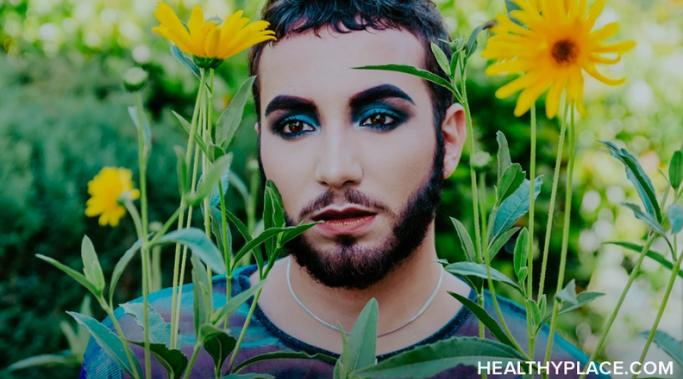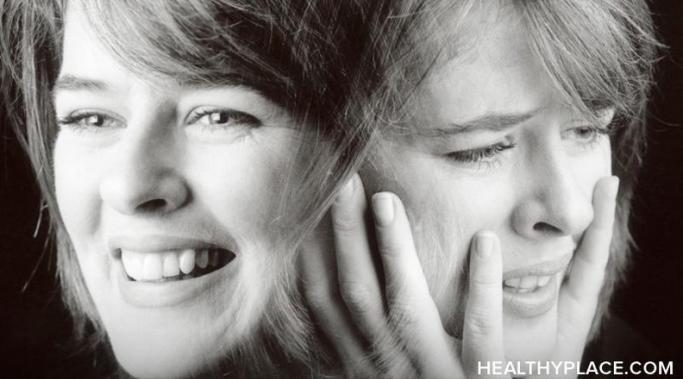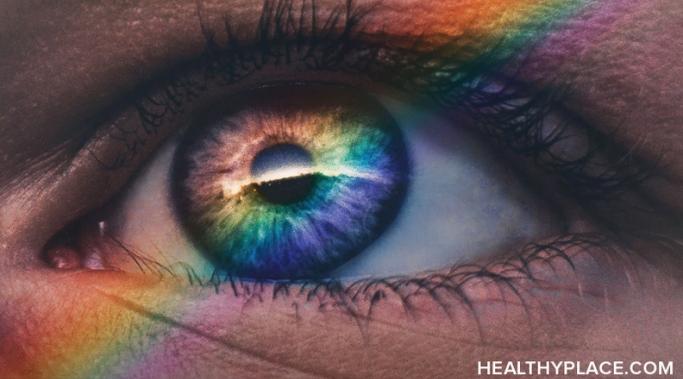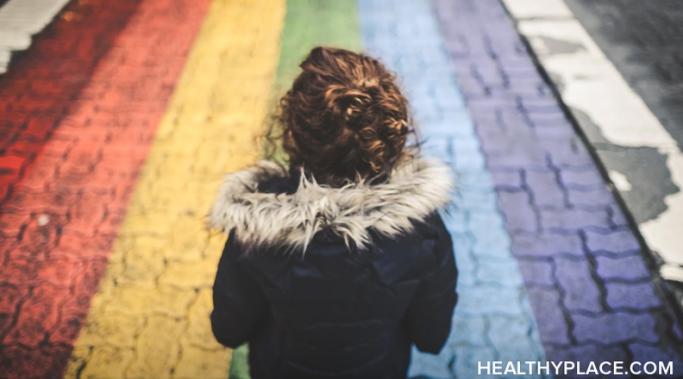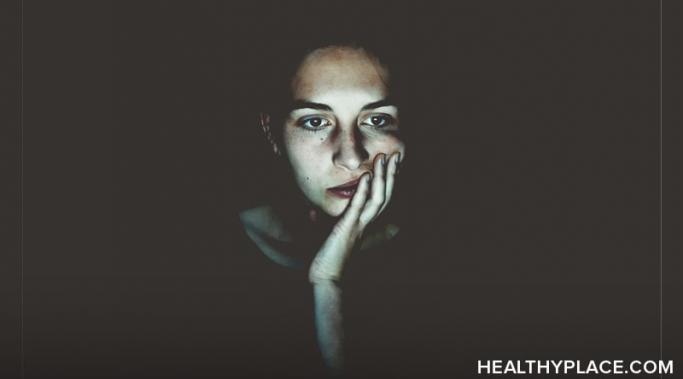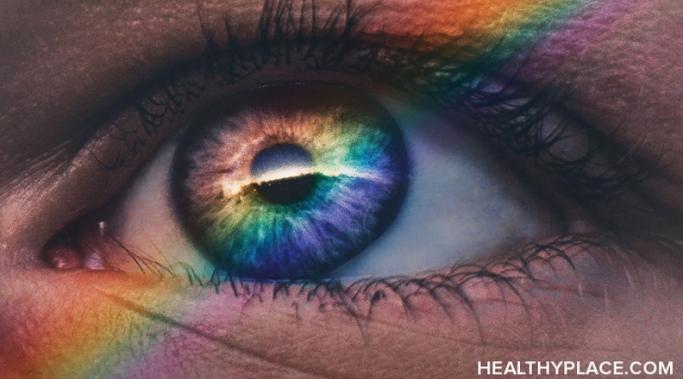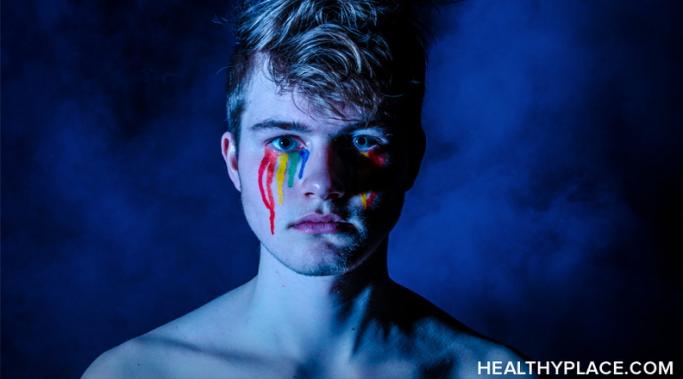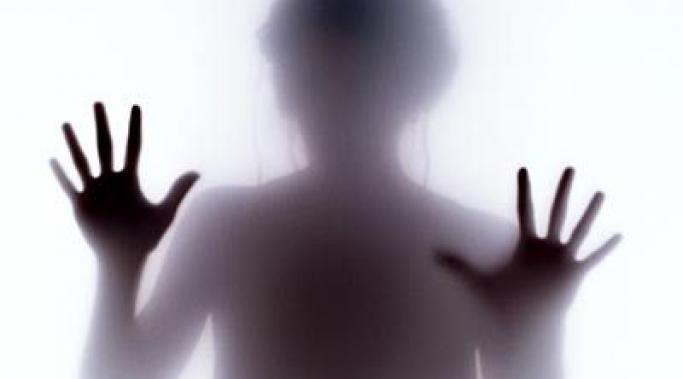When offering help to those we know with mental health concerns, we must remember language is important. Our lesbian, gay, bisexual, transgender, queer, intersex, asexual, etc. (LGBTQIA+) community especially requires attention to language when speaking with them regarding mental health concerns. Providing space for our LGBTQIA+ community is essential in productive mental health care. We can help provide space using LGBTQIA+-inclusive language as well as being mindful of what we ask others.
Gender
My mental health caused me to visit a psychiatric hospital when I was 19 years old. I had never experienced hospitalization for my mental health, nor did I have adequate coping skills going in. In addition to my mental health deteriorating, I had just come out as a lesbian. I was searching to find my place in the lesbian, gay, bisexual, transgender, queer, intersex, asexual, etc. (LGBTQIA+) community. I found ways to cope once in the hospital, though. Read further to see what helped me cope during this dark time in my mental health past.
The holidays can be a difficult time for those struggling with anxiety or other mental health issues. Those in our lesbian, gay, bisexual, transgender, queer, intersex, asexual, etc. (LGBTQIA+) community struggling with anxiety have an added layer of difficulty during the holidays. I haven't celebrated a holiday with my family in many years. This is due to both my sexual orientation as well as my difficulties with mental illness. For those LGBTQIA+ individuals who have no ties to their family or a strained relationship with family, this time of year can be less than joyous. How can we rally to help our LGBTQIA+ mental health community feel more included?
I have identified as a lesbian for as long as I have battled anxiety. I came out to my family and friends 13 years ago, unaware that my sexual orientation would be one of the biggest triggers of my anxiety symptoms. Those in the lesbian, gay, bisexual, transgender, queer, intersex, asexual, etc. (LGBTQIA+) community who also have a mental illness face many obstacles regarding public treatment. The constant worry of judgment and non-acceptance when out in public can lead to heightened anxiety. Holding on to what we can control and educating others about our community can help calm this worry.
I'm not alone in using video games like "Animal Crossing" to cope with my mental illness. Ever since the shelter-at-home orders back in February, gamers have been purchasing the Nintendo Switch faster than they can be physically made. Video games became a form of escapism, and what was once a pastime became a coping mechanism for those stuck at home. While I’ve been trapped in my apartment in this pandemic, no Nintendo Switch game has been more useful for exploring and coping with my mental illness than "Animal Crossing."
Life as an autistic transgender person was complicated almost from the beginning. As an undiagnosed autistic child, I hadn't considered that there was anything different about me until my sister started pointing it out. Growing up with an opinionated sister telling me what to wear, how to hold hands with boys, what sports to play, and how to act taught me how to camouflage my more autistic traits and keep my queerness to myself. How could I be queer, transgender, or different when I was so busy trying to be well-liked?
Since I'm openly transgender, I sometimes get comments that my identity is a mental illness because "gender dysphoria" is in the DSM-5, the official diagnostic tool for psychiatric disorders. To me, this reflects a misunderstanding about what gender dysphoria is and how it's treated. While most trans people experience dysphoria, especially before transitioning, not all trans people do for their whole life. For that reason, it's possible for someone to be transgender but not have gender dysphoria.
Last week I went to my two-year checkup for hormone replacement therapy, a medication I take because I am transgender, to align my body with my gender identity. I visit my doctor every six months to make sure my testosterone levels are in the healthy range for a man and that my mental and physical health are okay, too. The past two years have gone by so fast that it's hard for me to believe I've been on hormone medication for so long. It feels like just yesterday that I decided to seek help for my gender dysphoria, or the distress I felt because my biological sex and gender identity didn't align. Since my appointment, I've been thinking a lot about what it means to be transgender and how complex gender really is.
I find myself in a paradox lately. I have always been extremely accepting of others who are different, especially those who are lesbian, gay, bisexual, transgender, and queer (LGBTQ). But it's been extremely hard for me to accept that I am genderqueer. While this is common with people who suffer from mental illnesses, it is a huge problem with LGBTQ individuals. LGBTQ people have a much harder time with self-acceptance thanks to a hostile environment that does not accept their sexuality and gender identity. In short, gender dysphoria affects my depression.
Dealing with depression and other mental illnesses is very hard. But when an individual identifies as lesbian, gay, bisexual, transgender, or queer (LGBTQ), the struggle can become alienating. Many LGBTQ individuals find themselves disconnected between their true identity and the person they are forced to be in public. This is why many LGBTQ people have depression and contemplate suicide. Being genderqueer, too, can lead to depression. Sadly, many go through with suicide because they see no better option.
